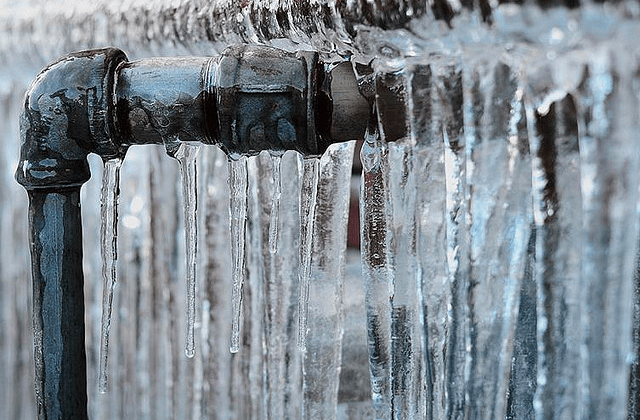Tips to Defend Plumbing System from Cold Weather: Essential Tips
Tips to Defend Plumbing System from Cold Weather: Essential Tips
Blog Article
How do you really feel in regards to How to prepare your home plumbing for winter weather?

Cold weather can damage your plumbing, particularly by freezing pipelines. Below's exactly how to prevent it from taking place and what to do if it does.
Introduction
As temperature levels decrease, the risk of icy pipes boosts, possibly resulting in expensive repairs and water damage. Understanding exactly how to stop frozen pipes is crucial for property owners in cool climates.
Prevention Tips
Insulating susceptible pipes
Wrap pipes in insulation sleeves or use warm tape to shield them from freezing temperature levels. Focus on pipelines in unheated or exterior locations of the home.
Home heating methods
Keep indoor rooms properly heated up, particularly areas with pipes. Open closet doors to allow cozy air to flow around pipelines under sinks.
Exactly how to identify icy pipes
Search for reduced water flow from taps, uncommon smells or noises from pipelines, and noticeable frost on subjected pipelines.
Long-Term Solutions
Structural changes
Think about rerouting pipelines away from exterior wall surfaces or unheated areas. Add extra insulation to attic rooms, cellars, and crawl spaces.
Updating insulation
Purchase high-quality insulation for pipes, attics, and wall surfaces. Appropriate insulation aids maintain consistent temperature levels and lowers the risk of frozen pipes.
Safeguarding Outside Pipes
Garden pipes and outside taps
Detach and drain garden tubes prior to winter months. Mount frost-proof faucets or cover outdoor taps with shielded caps.
Recognizing Frozen Pipelines
What triggers pipes to ice up?
Pipes freeze when revealed to temperature levels below 32 ° F (0 ° C) for expanded periods. As water inside the pipelines ices up, it expands, taxing the pipeline wall surfaces and potentially causing them to burst.
Risks and damages
Frozen pipes can bring about supply of water disturbances, residential property damages, and costly repairs. Ruptured pipes can flood homes and trigger considerable architectural damage.
Indicators of Frozen Pipes
Identifying icy pipes early can prevent them from rupturing.
What to Do If Your Pipes Freeze
Immediate activities to take
If you think icy pipelines, maintain taps open to ease pressure as the ice thaws. Utilize a hairdryer or towels taken in warm water to thaw pipes slowly.
Final thought
Protecting against icy pipes requires aggressive procedures and quick feedbacks. By recognizing the causes, indicators, and preventive measures, homeowners can secure their plumbing during winter.
Helpful Tips to Prevent Frozen Pipes this Winter
UNDERSTANDING THE BASICS: WHY PIPES FREEZE AND WHY IT’S A PROBLEM
Water freezing inside pipes is common during the winter months, but understanding why pipes freeze, and the potential problems it can cause is crucial in preventing such incidents. This section will delve into the basics of why pipes freeze and the associated problems that may arise.
THE SCIENCE BEHIND FROZEN PIPES
When water reaches freezing temperatures, it undergoes a physical transformation and solidifies into ice. This expansion of water as it freezes is the primary reason pipes can burst. As the water inside the pipe freezes, it expands, creating immense pressure on the walls. If the pressure becomes too great, the pipe can crack or rupture, leading to leaks and water damage.
FACTORS THAT CONTRIBUTE TO PIPE FREEZING
Low Temperatures: Extremely cold weather, especially below freezing, increases the risk of pipes freezing. Uninsulated or Poorly Insulated Pipes: Pipes located in unheated areas, such as basements, crawl spaces, or attics, are more prone to freezing. Insufficient insulation or lack of insulation altogether exacerbates the problem. Exterior Wall Exposure: Pipes running along exterior walls are susceptible to freezing as they encounter colder temperatures outside. Lack of Heating or Temperature Regulation: Inadequate heating or inconsistent temperature control in your home can contribute to frozen pipes. PROBLEMS CAUSED BY FROZEN PIPES
- Pipe Bursting: As mentioned earlier, the expansion of water as it freezes can cause pipes to burst, resulting in significant water damage.
- Water Damage: When pipes burst, it can lead to flooding and water damage to your property, including walls, ceilings, flooring, and personal belongings.
- Structural Damage: Prolonged exposure to water from burst pipes can compromise the structural integrity of your home, leading to costly repairs.
- Mold and Mildew Growth: Excess moisture from water damage can create a favorable environment for mold and mildew growth, posing health risks to occupants.
- Disrupted Water Supply: Frozen pipes can also result in a complete or partial loss of water supply until the issue is resolved.
WHY CERTAIN PIPES ARE MORE PRONE TO FREEZING
- Location: Pipes located in unheated or poorly insulated areas, such as basements, crawl spaces, attics, or exterior walls, are at higher risk of freezing.
- Exterior Pipes: Outdoor pipes, such as those used for irrigation or exposed plumbing, are particularly vulnerable to freezing as they are directly exposed to the elements.
- Supply Lines: Pipes that carry water from the main water supply into your home, including the main water line, are critical to protect as freezing in these lines can affect your entire plumbing system.
- Underground Pipes: Pipes buried underground, such as those connected to sprinkler systems or outdoor faucets, can be susceptible to freezing if not properly insulated.
https://busybusy.com/blog/helpful-tips-to-prevent-frozen-pipes-this-winter/

I came across that post about How to Prevent Your Pipes From Freezing while doing a search on the search engines. Those who enjoyed our blog entry kindly make sure you remember to share it. Kudos for being here. Come back soon.
Call Today Report this page